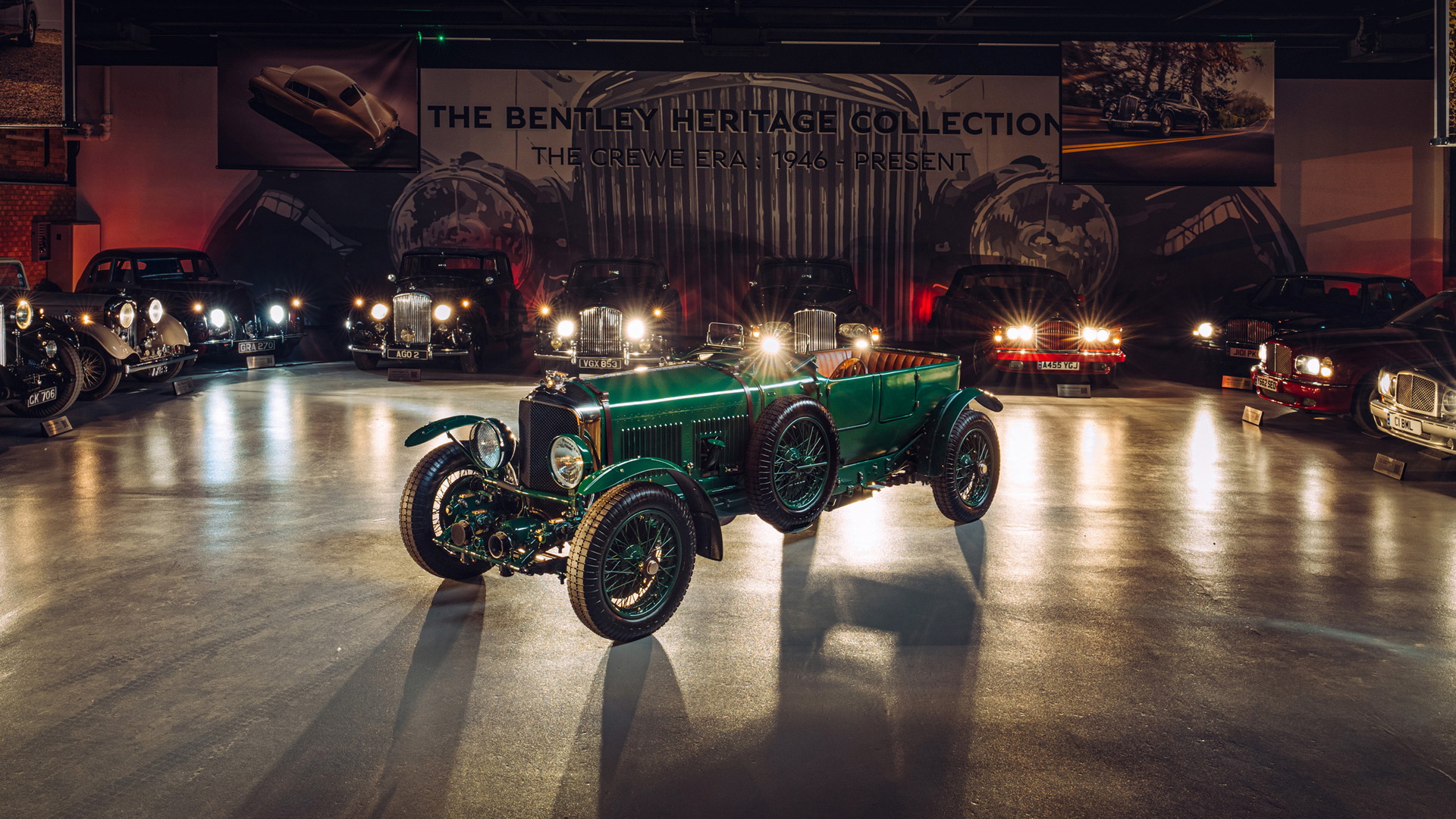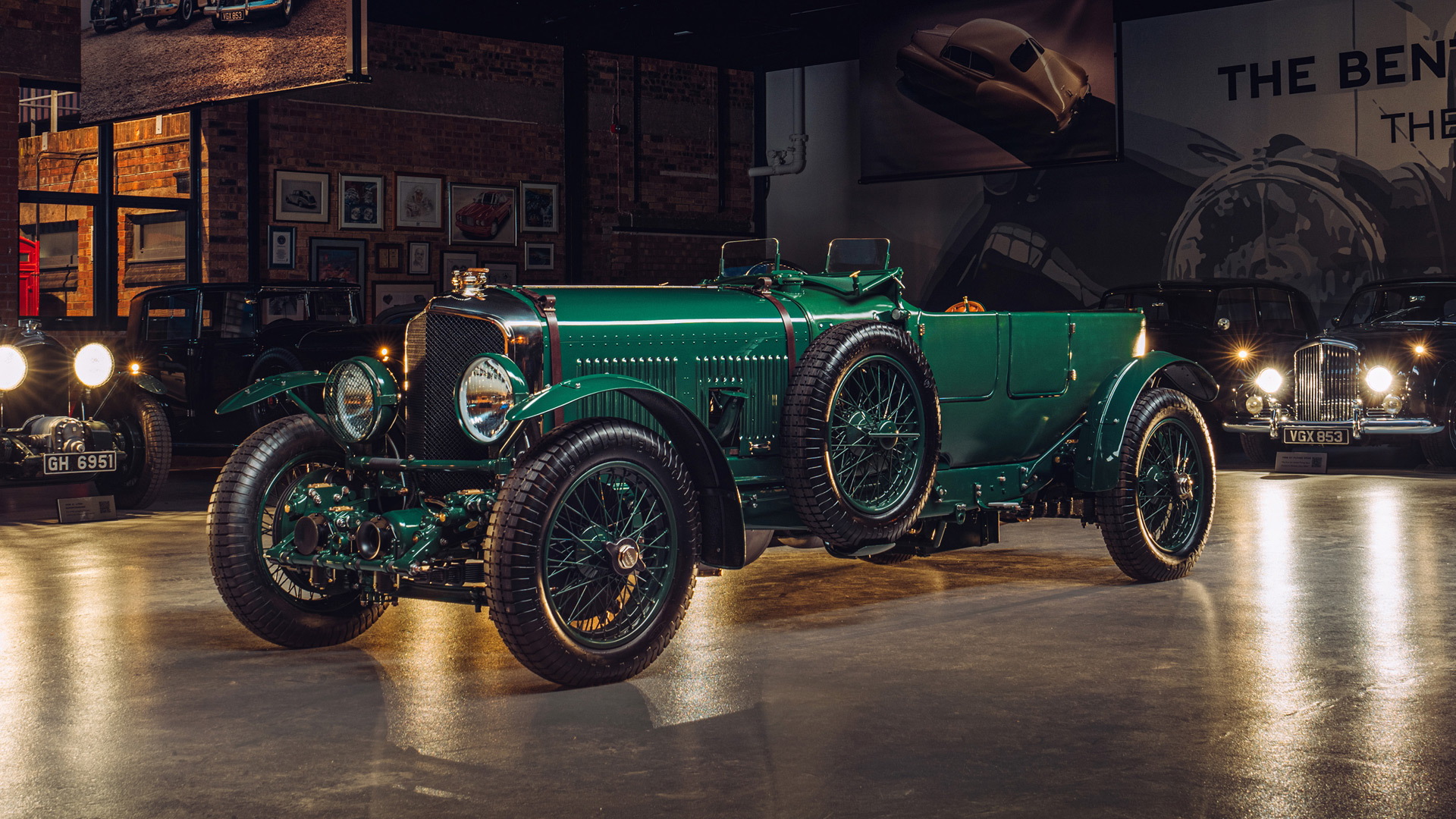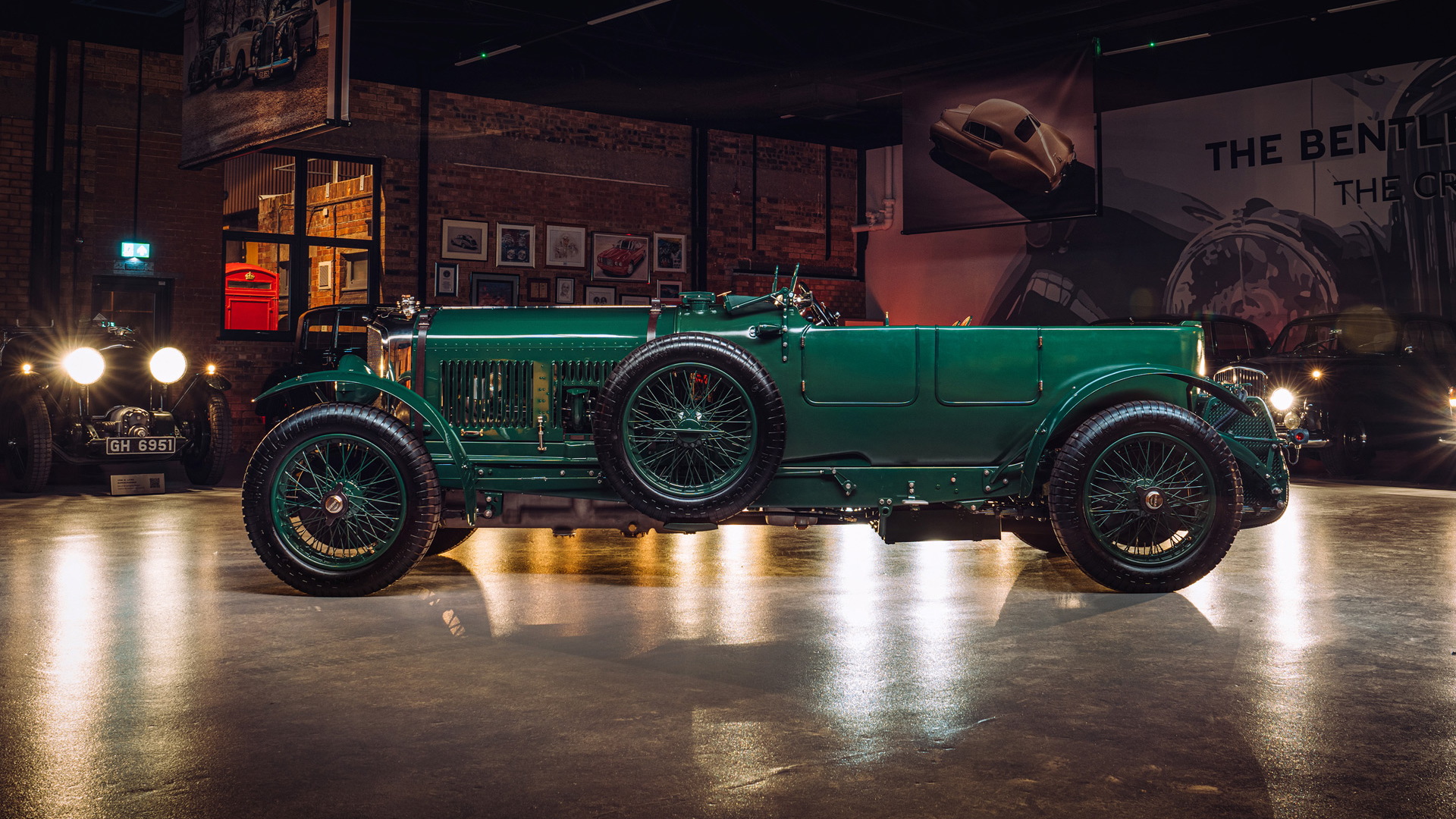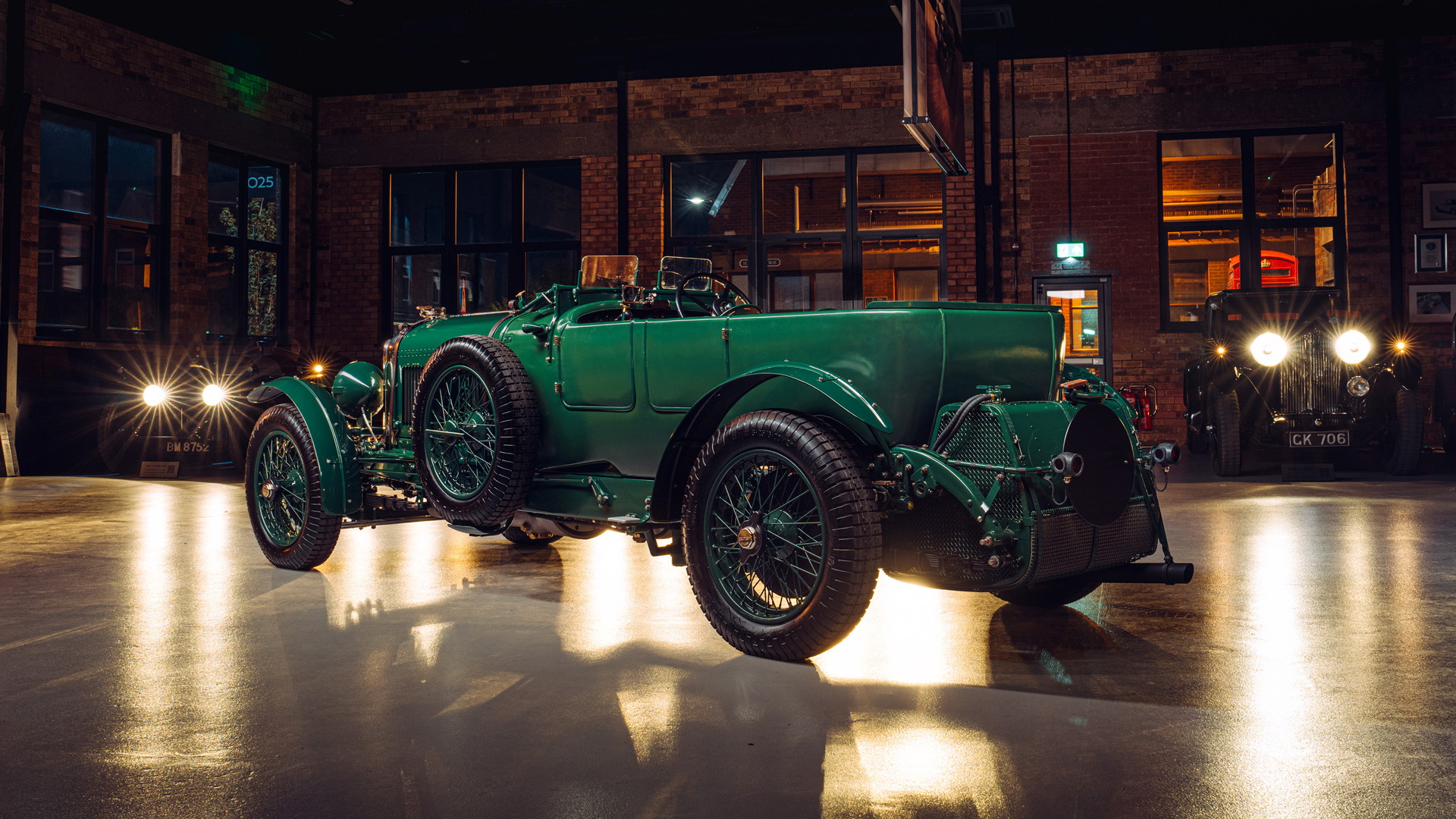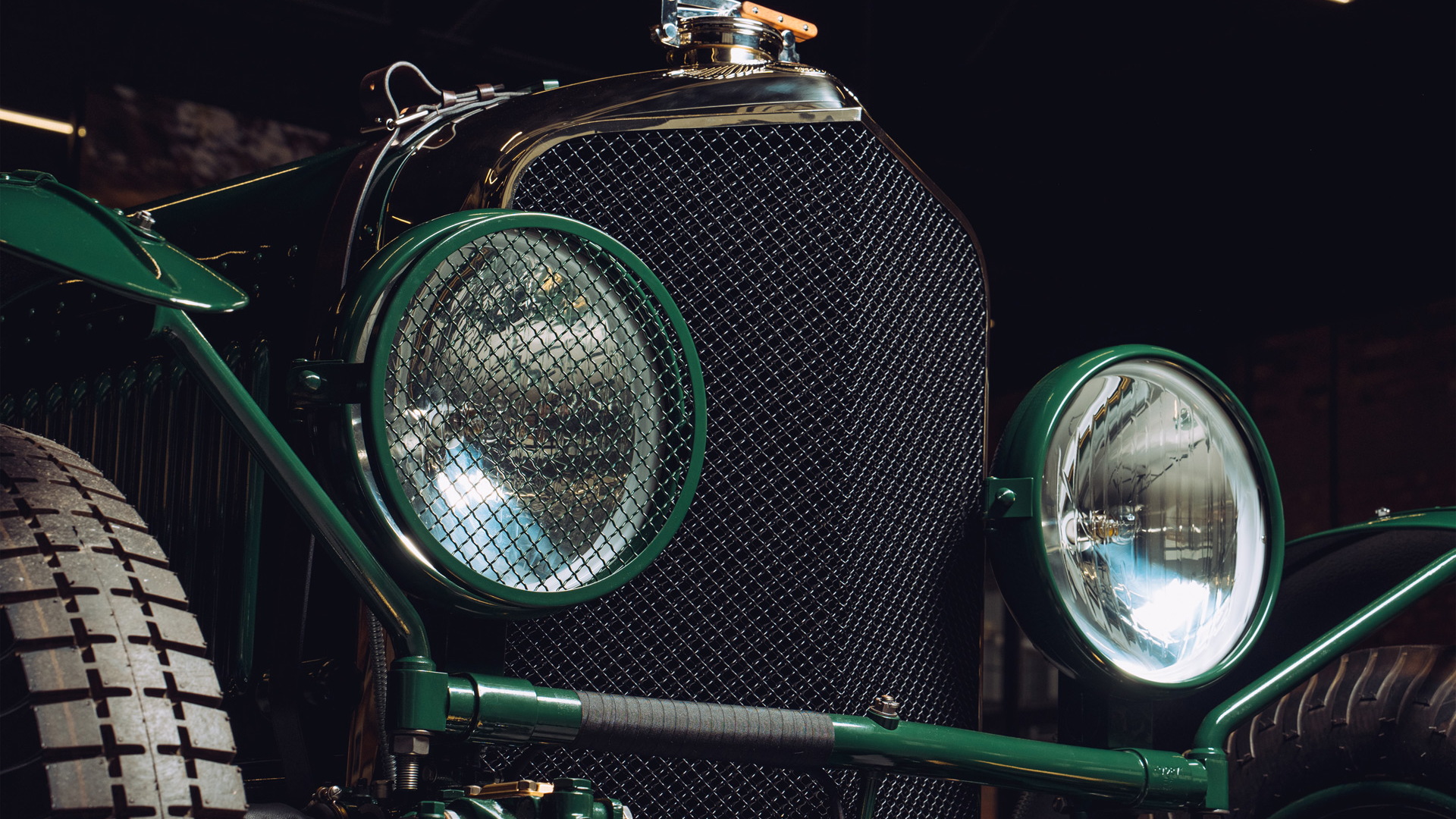Bentley no longer races at Le Mans, but during the automaker's formative years it dominated the event, scoring five wins between 1924 and 1930. Two of those wins, in 1929 and 1930, were achieved by the legendary Speed Six thanks to efforts of Bentley Boys "Tim" Birkin, Glen Kidston, and Woolf Barnato. Barnato was also chairman of Bentley at the time.
Bentley last year said it planned to build 12 modern examples of the Speed Six as part of a Continuation Series program that kicked off late last decade with modern examples of the 1929 Bentley Blower. In the program, Bentley builds additional versions of early cars, with parts that in many cases are created using the same techniques as back in the day.
The first of the modern Speed Six cars has now been completed, a prototype version that will be retained by Bentley. It was presented for the first time on Thursday at the 2023 Goodwood Festival of Speed. As a prototype, it will be used for real-world durability testing, including at the racetracks.
Production of the first customer car will begin in October. Each car will take around 10 months to complete and all 12 are scheduled to be completed by the end of 2025. The team at Bentley's Mulliner personalization department, the same team responsible for the previous Blower Continuation Series, is responsible for the project.
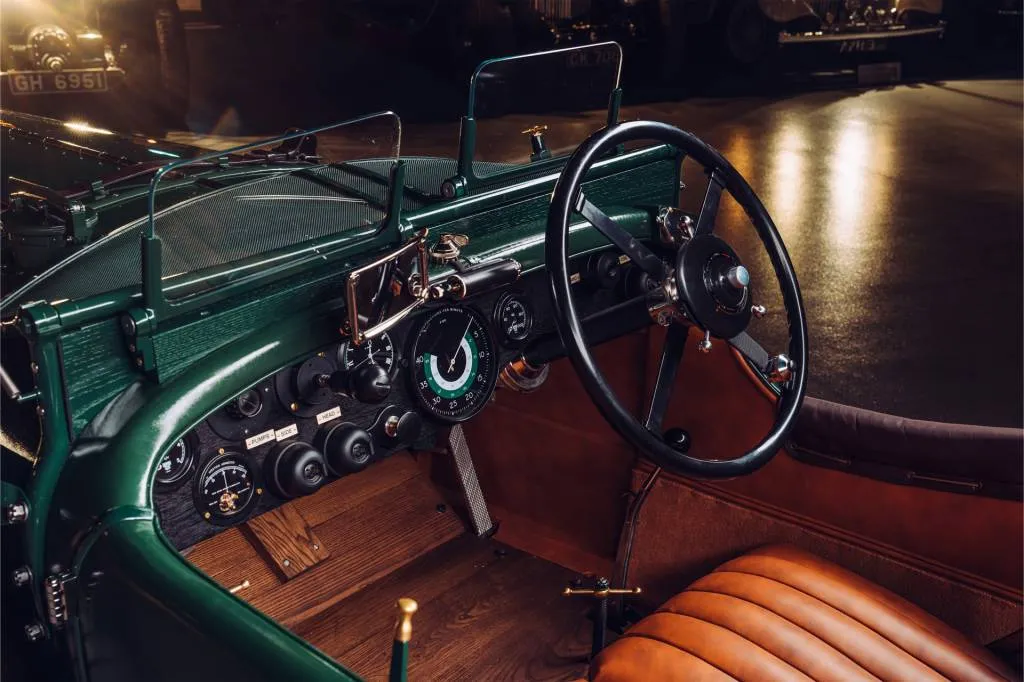
1930 Bentley Speed Six Continuation Series prototype
Building the cars isn't an easy process, especially as Bentley wanted to build Speed Sixes matching the specification of the Le Mans winners. The team relied on original drawings, mechanics' notes, and 3D scanning of the original cars.
In the case of the engine alone, in excess of 600 individual parts were required. Initial dyno testing of the modern 6.5-liter inline-6 has shown the engine delivers 205 hp at its peak, which is within 5 hp of what is documented for the original race-tuned engine.
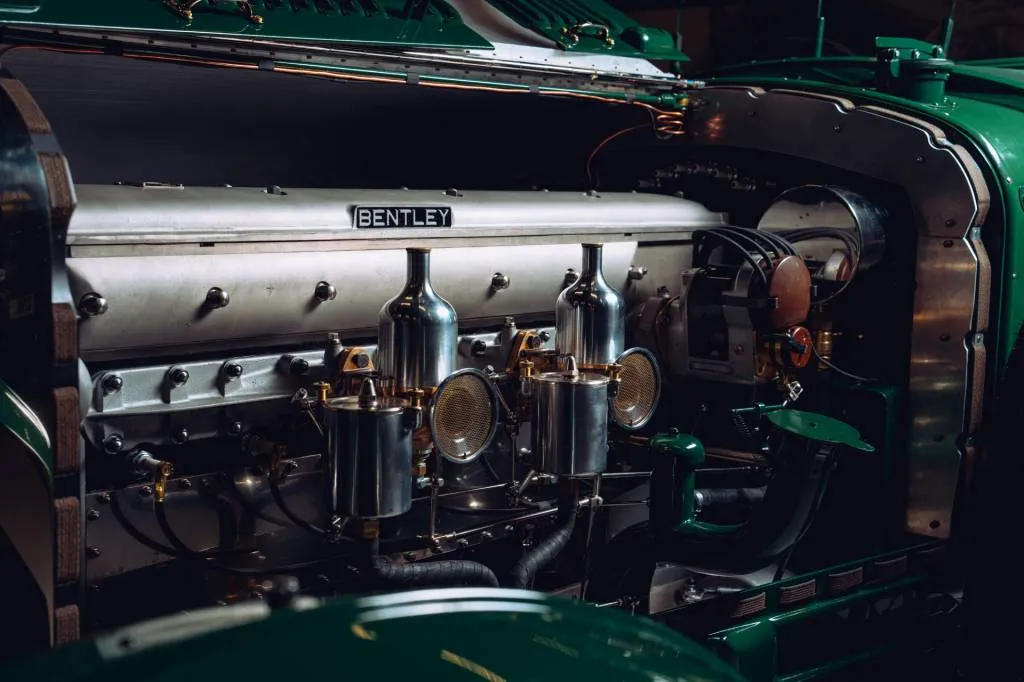
1930 Bentley Speed Six Continuation Series prototype
The pursuit of authenticity extends to the colors of the paint and interior trim, which the team matched to samples at the archives of the U.K.'s National Motor Museum.
In case you're wondering, all 12 build slots for the modern Speed Six are gone, despite a price tag of 1.5 million euros (approximately $1.67 million).
